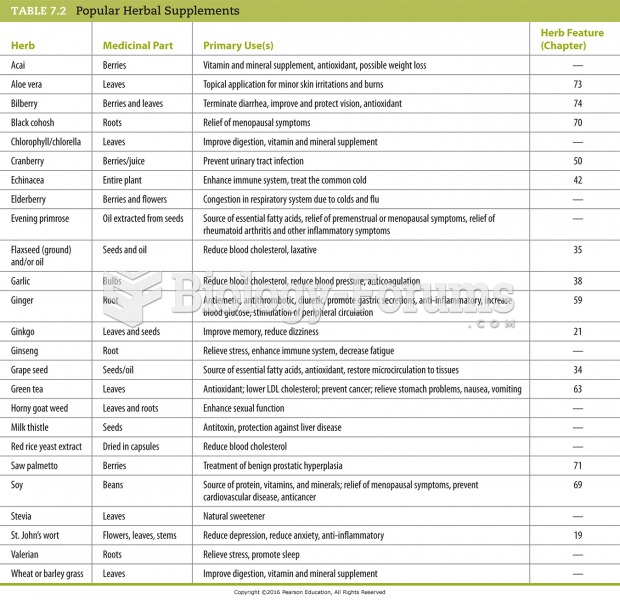Answer to Question 1
Coenyzme Q: Improves the function of mitochondria in cells, which produce energy; it is an important link in the chain of chemical reactions and an antioxidant. Studies have shown that the functioning of the mitochondria in cells of those patients with PD is impaired and coenzyme Q can protect the area of the brain that is affected by PD.
Omega-3 fatty acids: Studies have shown that a brain with a higher content of omega-6 FA compared to omega 3-FA has a higher risk for further progress of PD since omega-6 FA are associated with increased inflammatory response; the ratio of omega-3s to omega-6s should be 4 to 1 but is actually 10 to 20 in the American diet. Omega-3 FA also seem to be immune to the effect of MPTP, a toxic compound that causes the same damage to the brain as PD; this is thought to be a protective effect that slows the progression of PD.
Creatine: Thought to improve exercise performance by improving the function of the mitochondria of cells and acts as an antioxidant that prevents damage from the compounds that are harmful to cells in the brain
Answer to Question 2
It is reasonable to suggest long-term enteral feeding for this patient; indications that this patient needs long-term enteral feeding include an inability to consume adequate nutrition orally due to problems swallowing, decreased motor ability with history of progressive Parkinson's disease, and increased nutritional needs as evidenced by a 20 weight loss. The malnutrition is also apparent as muscle wasting (quadriceps, gastrocnemius, and temporal wasting) and fat loss (periorbital fat pads) are prominent. Also, this patient has no issues with digestion of food or problems with the GI tract besides constipation, meaning that enteral feeding is the best option for nutritional support; this patient's normal bowel sounds indicate that the GI tract is working.
- With the history of Parkinson's disease and a decrease in motor function, it is appropriate to check for an obstruction within the bowel or to administer constipation medications to correct this issue before feeding enterally.
A PEG tube is most appropriate to feed a patient via the stomach if the need is greater than 90 days. It is important to monitor for aspiration with the increased risk of feeding through the stomach/history of swallowing issues, but this route is most physiologic, most convenient for bolus feedings around the medication regimen, and least costly.







